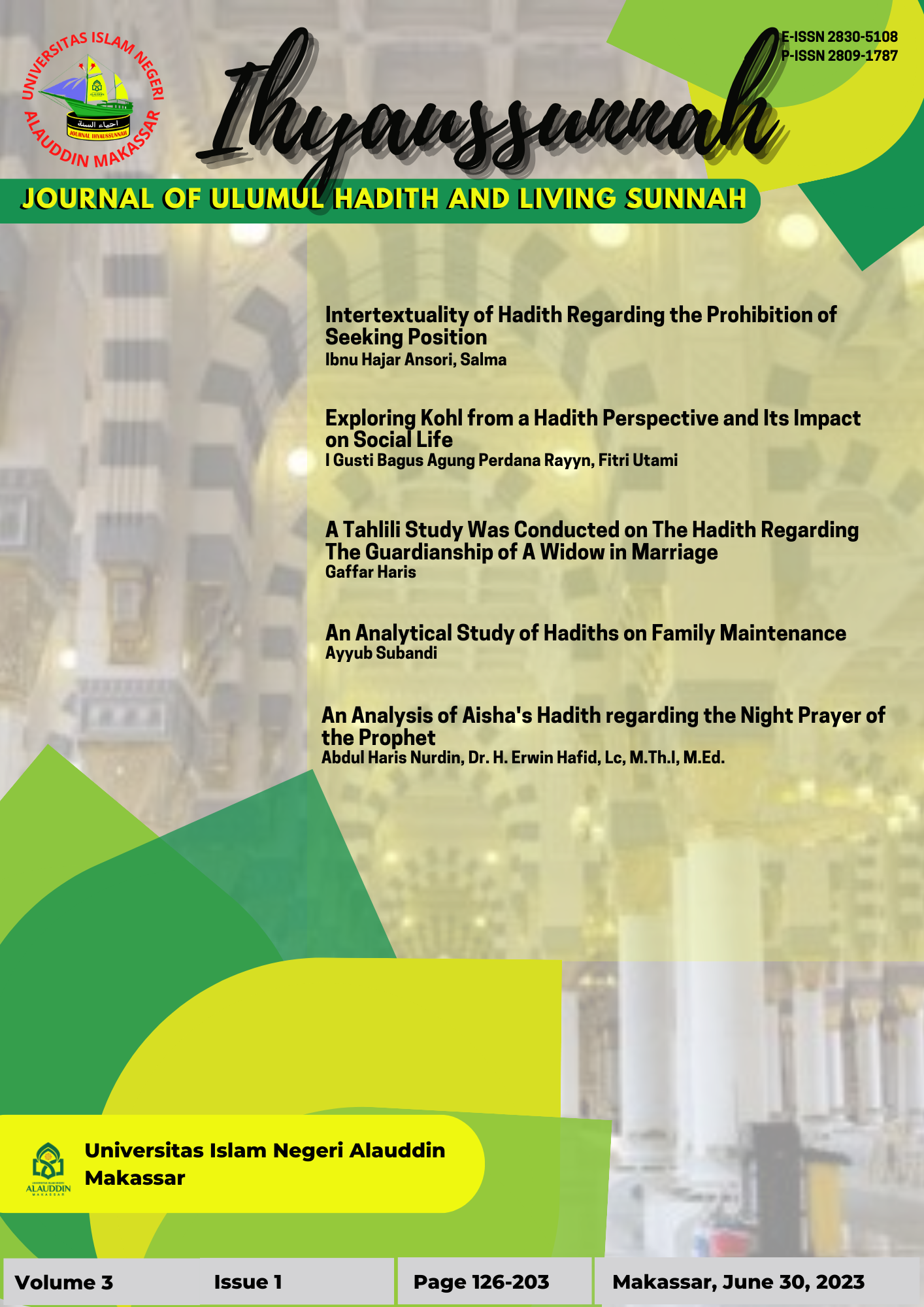An Analysis of the Hadith on Hajj Ifrad , as Reported by Sunan Al-Nasā'ī, from a Sanadic Critique Perspective
Abstract
The main problem which is the focus point of this study is focused on the criticism of sanad, the purpose of which is to find out the truth of hadith from the point of view of authenticity and originality. Then the hadith scholars have attempted to classify and distinguish the hadiths that really come from the Prophet from human words that speak on behalf of the Prophet under the guise of false hadiths. Therefore, the presence of various terms or methods such as takhrij al-hadith greatly facilitates hadith reviewers in determining the status of hadith whether the hadith really originates from the Prophet or not. With this, it can be seen that the perfection of a hadith is if it fulfills the conditions, namely the sanad is continuous, narrated by a just person, narrated by a dhabit person, does not contain syadz or illat. The research method used is (library research) focused on books, books, journals, and applications such as Maktabah Syamilah, Hadis Shoft, Lidwa Pustaka, Tahzīb al-Kamāl fi al-Asmā' Rijāl, Tahzīb at-Tahzīb, Al-Mu'jam al-Mufahras li Alfādzi al-Hadīs al-Nabawī, and Mausu'ah al-Atrāf al-Hadīs al-Nabawī al-Syarīf. And the steps taken are using two takhrij methods 1) Takhrij by using the first pronunciation of the hadith matan, 2) Takhrij by using one of the pronunciations of the hadith matan.
Downloads
References
Copyright (c) 2023 Hamma Aming Amin, Arya Syahputra, Muhammad Rifai

This work is licensed under a Creative Commons Attribution-ShareAlike 4.0 International License.
Copyright
Authors who publish with IHYAUSSUNNAH JOURNAL OF ULUMUL HADITH AND LIVING SUNAH agree to the following terms:
- Authors retain copyright and grant the journal right of first publication with the work simultaneously licensed under a Creative Commons Attribution License (CC BY-SA 4.0) that allows others to share the work with an acknowledgment of the work's authorship and initial publication in this journal.
- Authors are able to enter into separate, additional contractual arrangements for the non-exclusive distribution of the journal's published version of the work (e.g., post it to an institutional repository or publish it in a book), with an acknowledgment of its initial publication in this journal.
- Authors are permitted and encouraged to post their work online (e.g., in institutional repositories or on their website) prior to and during the submission process, as it can lead to productive exchanges, as well as earlier and greater citation of published work.


